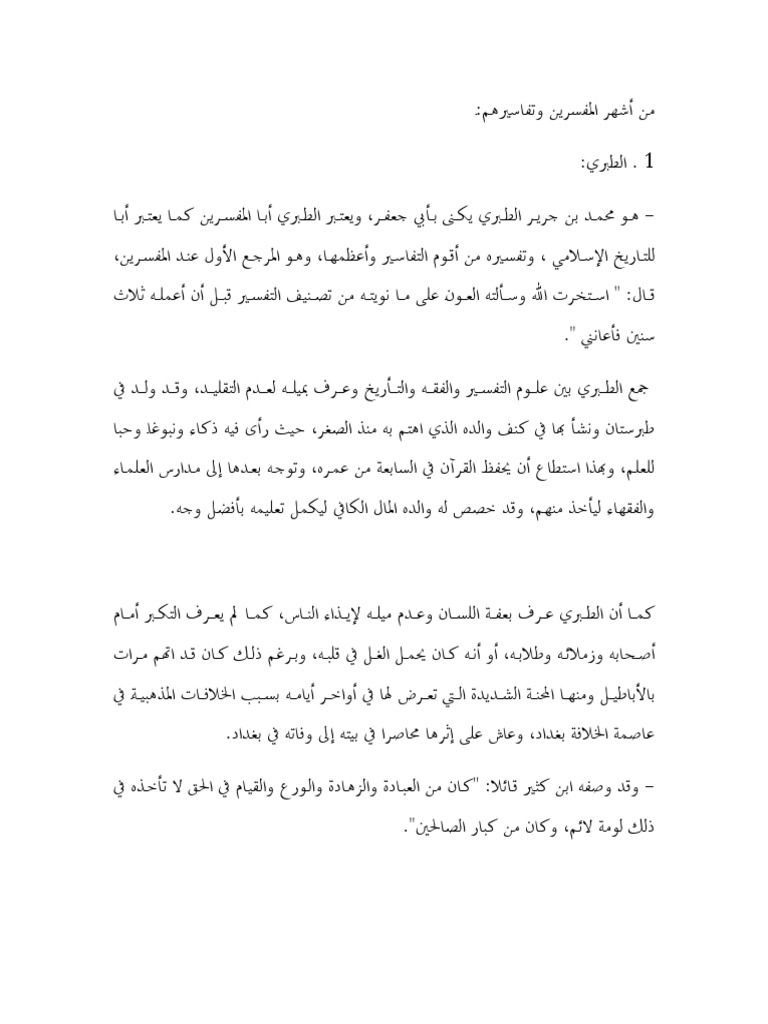The intricate tapestry of Shia Islam unveils a plethora of teachings, insights, and nuances, one of which is encapsulated in the esteemed *Tafsir al-Numani*. This interpretative work, grounded in the Shia tradition, elucidates the Qur’anic verses with an emphasis on the theological and philosophical underpinnings unique to Shia thought. However, a pertinent question arises: How does *Tafsir al-Numani* differentiate itself from other Qur’anic exegeses, and what challenges does it present to both scholars and believers alike?
To embark on this exploration, it is essential to first comprehend the essence of the tafsir itself. The term 'tafsir' refers to the exegesis or commentary of the Qur'an, serving as a conduit through which readers can engage with the divine text. In the Shia tradition, tafsir is not merely an academic exercise; it is viewed as a sacred task that requires deep reflection and a profound understanding of historical and contextual nuances. Within this framework, *Tafsir al-Numani* epitomizes a distinctive approach that privileges the interplay of hadith (traditions of the Prophet and his progeny) alongside the textual analysis of the Qur'an.
The author of *Tafsir al-Numani*, the eminent Shaykh al-Numani, offers insights that resonate deeply with the ethos of Shia theology. His work is characterized by comprehensive methodological rigor, drawing upon authentic hadiths and the interpretations provided by the Imams, the divinely appointed leaders in Shia thought. This reliance on prophetic traditions provides *Tafsir al-Numani* with a unique lens through which to examine the Qur'an, contrasting sharply with Sunni interpretations that may prioritize linguistic analysis over traditions.
A fundamental theme within *Tafsir al-Numani* is the concept of imamate, a pivotal doctrine in Shia Islam. The tafsir posits that the Qur'an contains implicit and explicit references to the authority of the Imams, who, as divinely chosen leaders, are considered the infallible guides for the community. This belief challenges the reader to reconcile personal interpretations with established theological tenets. How does one navigate the delicate balance between individual understanding and communal doctrine? This dilemma is at the heart of Shia scholarship.
The tafsir also delves into the thematic elements of justice and morality, which are profoundly ingrained in the Qur'anic narrative. Through *Tafsir al-Numani*, readers are invited to ponder the ethical implications of the verses. The interpretation of justice is not merely transactional but is presented as a divine principle woven into the very fabric of existence. This raises an intriguing challenge: in a world rife with ethical ambiguities, how does one apply the moral lessons extracted from the Qur'an to contemporary realities? The quest for alignment between scriptural guidance and daily living remains a formidable task.
Moreover, the stunning depth of *Tafsir al-Numani* allows for an examination of socio-political issues through a Qur'anic lens. Shaykh al-Numani unearths layers of meaning that have significant implications for the Shia community, prompting discussions around governance and social justice. Historical events, such as the tragedy of Karbala, are intricately woven into the fabric of his interpretations. How does the narrative of Karbala inform our understanding of resistance against tyranny, and what lessons can we glean for our own sociopolitical engagements? These inquiries resonate deeply within the Shia intellectual tradition.
One cannot overlook the literary elegance of *Tafsir al-Numani*, which draws readers into a contemplative space where the beauty of the Qur'anic text is illuminated through artful language and structured rhetoric. Readers may find themselves enchanted by the rhythmic cadences of the verses as rendered by al-Numani. This aesthetic dimension prompts a vital question: Can one truly appreciate the spiritual essence of the Qur'an without being attuned to its linguistic beauty? The interplay of form and content warrants deep reflection.
Challenges also arise in the modern context, where the rapid proliferation of digital resources has democratized access to Qur'anic interpretations. In this milieu, *Tafsir al-Numani* stands as a bastion of traditional scholarship. Yet, how does it retain relevance amidst the cacophony of perspectives vying for attention? The persistent engagement of scholars and students with such classic texts is critical, as it fosters a richer understanding of Shia spirituality.
In conclusion, *Tafsir al-Numani* serves not only as a critical resource for Shia Muslims but as an intellectual cornerstone that reinforces the significance of divine guidance throughout history. Through its multifaceted interpretations, the tafsir invites readers to grapple with profound questions that transcend time and space, challenging them to align their lives with the ethical and theological imperatives of Islam. As one delves into its pages, the multifarious challenges posed—including those of authority, morality, and contemporary relevance—encourage an ongoing dialogue with both the text and the traditions of Shia thought. Embracing these complexities is not merely an academic endeavor; it is a spiritual journey that leads to deeper understanding and, ultimately, to a more profound connection with the divine.


